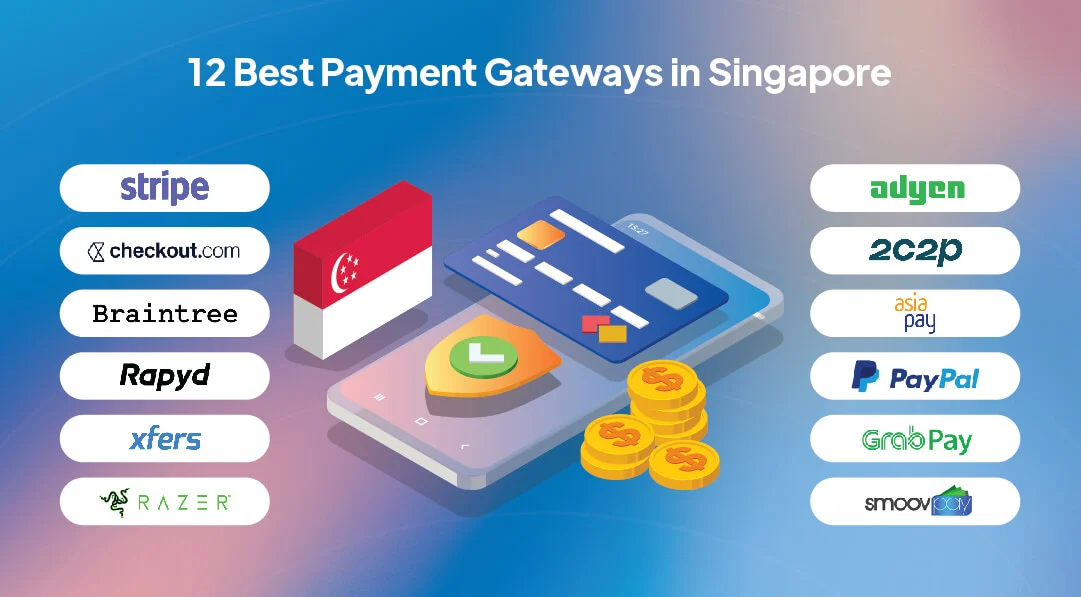AUTHOR : SAYYED NUZAT
DATE : 28-10-2023
In today’s fast-paced digital world, payment platforms[1] have become the backbone of financial transactions, both for consumers and businesses.[2] This article delves into the dynamic landscape of payment platforms[3] in Singapore, examining their evolution,[4] the dominant players, security measures, and also the future of this industry. Let’s explore how Singapore is at the forefront of the payment revolution.
The Growing Significance of Payment Platforms
The way we make payments[5] has dramatically changed over the years. Gone are the days when cash was king. Payment platforms have emerged as the new standard, offering convenience, speed, and security. These platforms have found their place in both everyday purchases and significant financial transactions.

A Closer Look at Payment Platforms in Singapore
Singapore, known for its technological advancements, has embraced payment platforms wholeheartedly. With a tech-savvy[1] population and a thriving business environment, the city-state is an ideal market for these services. The adoption of digital payment methods in Singapore has been remarkable.
The Evolution of Payment Methods
From traditional cash[2] payments to checks, credit cards, and now digital wallets[3] and mobile apps, the evolution of payment methods has been relentless. Payment platforms have been at the forefront of this change, offering a seamless transition to digital transactions.
The Dominance of Mobile Payment Apps
Mobile payment apps like GrabPay, PayLah!, and FavePay have taken the lead in Singapore. They allow users to make payments with a simple tap on their smartphones. These apps offer not only convenience but also various discounts and rewards, making them a preferred choice for many.

E-commerce and Payment Platforms
The rise of e-commerce[4] has further fueled the growth of payment platforms. Online shoppers expect quick and secure payment options, and payment platforms have met this demand efficiently. The integration of these platforms with e-commerce[5] websites has transformed the shopping experience.
Ensuring Payment Security
The security of financial transactions is a top priority for both consumers and businesses. Payment platforms employ advanced encryption and security measures to protect users’ data and funds. Singapore has stringent regulations to ensure the safety of digital transactions.
Key Players in Singapore’s Payment Platform Industry
Several major players dominate the payment platform scene in Singapore. Companies like Grab, DBS PayLah!, and Singtel Dash have gained significant market share, offering a wide range of services and features to cater to diverse user needs.
A Comparison of Payment Platforms
Each payment platform in Singapore has its own unique features and advantages. We’ll compare the top players in terms of transaction speed, fees, rewards, and ease of use, helping you choose the one that suits you best.
The Role of Regulatory Bodies
To maintain the integrity of the payment platform industry, regulatory bodies like the Monetary Authority of Singapore (MAS) play a crucial role. They oversee the operations of these platforms and ensure compliance with established standards.
Future Trends in Payment Platforms
The payment platform industry is constantly evolving. We’ll explore the emerging trends, including contactless payments, blockchain technology, and the integration of artificial intelligence, which promise to reshape the future of digital transactions.
Benefits for Businesses
Businesses in Singapore also benefit from payment platforms. They can streamline their financial operations, accept various payment methods, and expand their customer base. The ease of use and security of these platforms enhance customer trust.
Challenges and Concerns
Despite the many advantages, there are challenges and concerns in the payment platform industry. These include cybersecurity threats, competition, and issues related to data privacy and regulation. We’ll discuss how the industry is addressing these concerns.
User Experience and Convenience
The user experience is key to the success of payment platforms. We’ll look at how these platforms are enhancing the user experience, offering convenience, and simplifying financial transactions for everyone.
Benefits for Businesses
Payment platforms offer a wide array of benefits to businesses in Singapore. The modern business landscape demands flexibility and efficiency in financial operations. Here’s how payment platforms contribute to the success of businesses:
- Efficient Transactions: Payment platforms facilitate quick and efficient transactions. Whether it’s accepting payments from customers or making payroll, businesses can handle financial matters without delays.
- Diverse Payment Methods: These platforms allow businesses to accept various payment methods, including credit cards, e-wallets, and bank transfers. This flexibility caters to a broader customer base.
- Reduced Costs: Traditional payment methods often come with high transaction costs. Payment platforms can offer more cost-effective solutions, saving businesses money in the long run.
Conclusion
In conclusion, payment platforms have revolutionized the way we handle our finances. In Singapore, these platforms have gained widespread acceptance and are poised for continued growth. As technology advances and consumer expectations evolve, the payment platform industry will continue to adapt and thrive.
FAQs
1. Are payment platforms in Singapore safe to use?
Payment platforms in Singapore are highly secure, with robust encryption and regulatory oversight to protect users’ data and funds.
2. What are the most popular mobile payment apps in Singapore?
Popular mobile payment apps in Singapore include GrabPay, PayLah!, and FavePay.
3. How do businesses benefit from using payment platforms?
Businesses benefit from payment platforms by streamlining financial operations, accepting various payment methods, and enhancing customer trust.
4. What are the future trends in payment platforms in Singapore?
Future trends include contactless payments, blockchain technology, and the integration of artificial intelligence to improve user experiences.
5. What challenges do payment platforms face in Singapore?
Challenges include cybersecurity threats, competition, and issues related to data privacy and regulation, which the industry is actively addressing.





